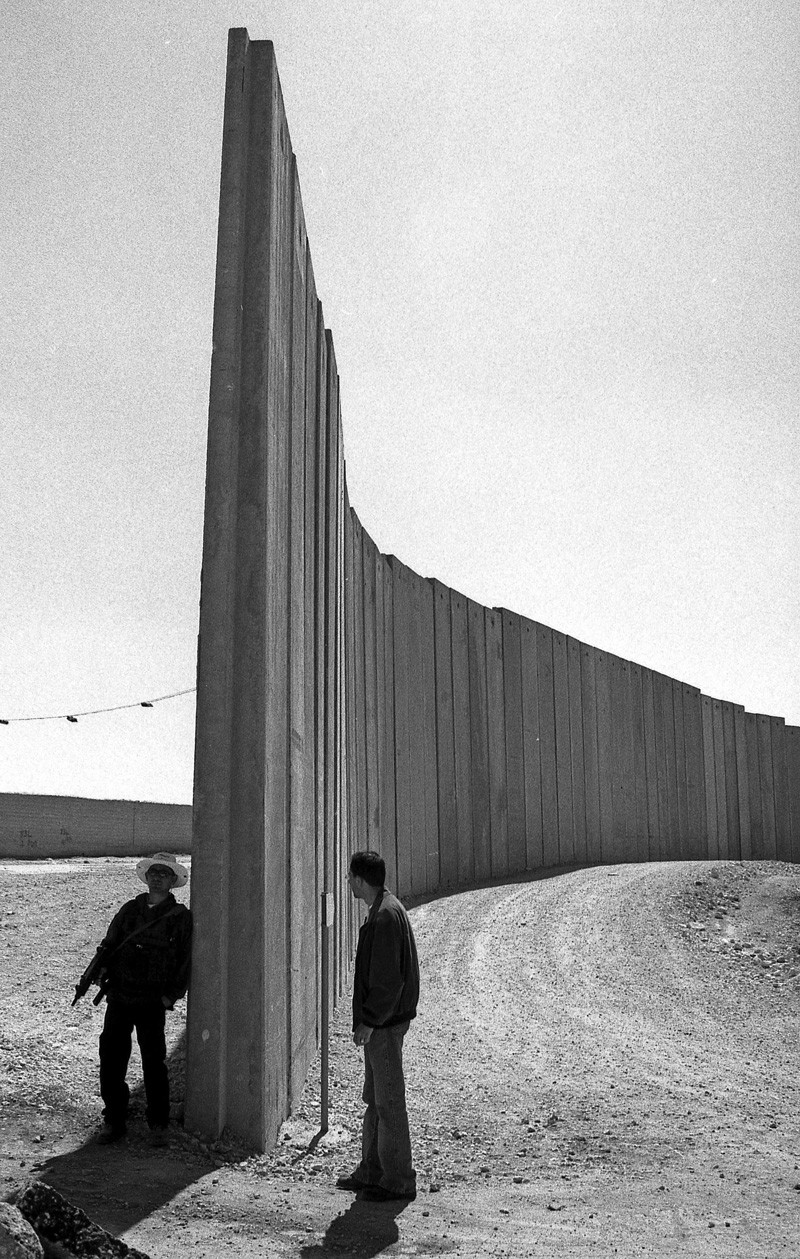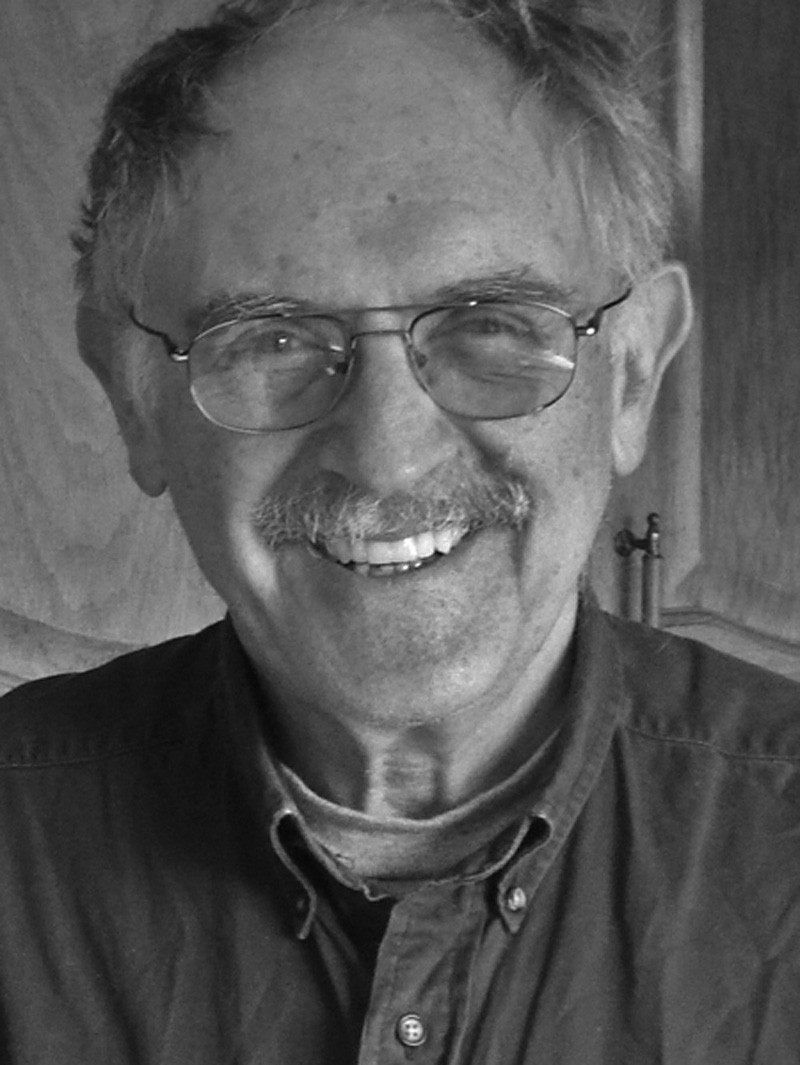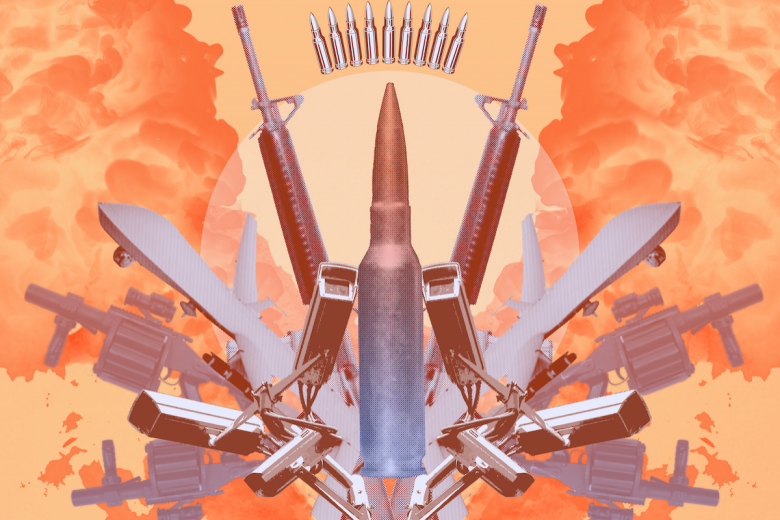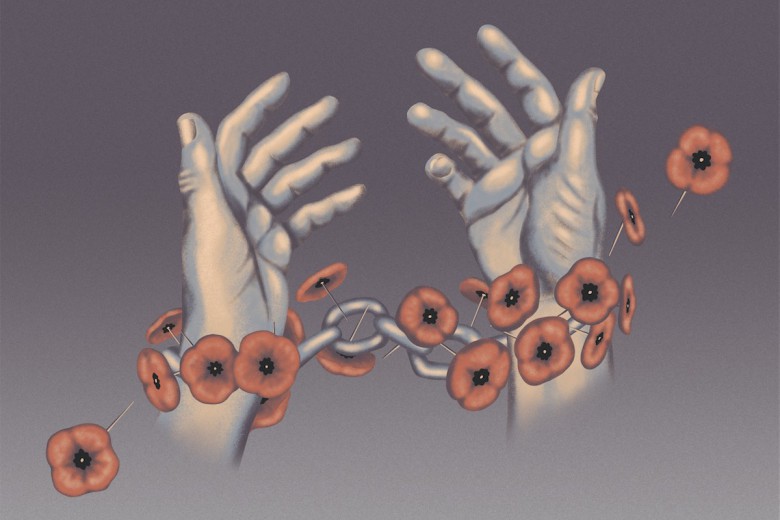
A scholar and activist, Joel Kovel studied medicine at Columbia University and psychiatry at the Albert Einstein College of Medicine. Kovel practiced psychiatry and psychoanalysis for 24 years, but since 1988, he has been a professor of Social Studies at Bard College, New York. He has published ten books including White Racism: A Psychohistory (1970), History and Spirit (1991), and The Enemy of Nature: The End of Capitalism or the End of the World? (2002),. His most recent book, Overcoming Zionism: Creating a Single Democratic State in Israel/Palestine, presents a compelling argument for justice in the Middle-East through the creation of a single democratic state stretching from the Mediterranean Sea to the Jordan River.
Briarpatch: Zionism is often equated with Judaism, and therefore any criticism of it is regarded with suspicion. Can you say a few words about what, specifically, you mean by Zionism, and why you oppose it?
Joel Kovel: When I talk about Zionism I’m referring to a movement that emerged towards the end of the 19th century that is sometimes called political Zionism. Political Zionism insists that the historical destiny of the Jewish people is to be the masters of an ethnically pure nation-state in historic Palestine.
One of the chief obstacles to the formation of such a state, of course, was that, while the Jews were a people defined by culture and religion, they had no national identity. Zionism achieved this sense of nationhood through the conquest of Palestine. Building this national identity required going back to the Old Testament notion of the Covenant-the notion that God had promised the land to the Israelites as a “chosen people.”
Zionism asserts that the Jewish claim on that land, which is over 2,000 years old, overrides anybody else’s claim, all legal considerations, and any respect for human rights. In order to build that nation-state, the Zionists had to unify the Jewish people around this archaic notion of being separate-a tribe unto themselves and a people apart.
The current Israeli national identity, then, was created by Zionists acting on a combination of Hebrew scripture and an archaic sense of Jewish identity that ultimately led to the politicization of tribalism and the racism of conquest. And of course, the equation of Zionism with Judaism serves Zionists very well, because it enables them to label any criticism of Israel anti-Semitic. By no means are all Jews Zionists. Indeed, significant sectors of the Jewish population have rejected Zionism from the beginning.
Is there a useful distinction to be made between Left Zionism and Right Zionism in understanding the nuances that exist in the movement?
No, this is not a helpful distinction. Certainly, there are a lot of people who consider themselves to be on the left and also Zionists. It is a contradiction, however, to advocate the cause of universal justice while still supporting the Zionist project of conquest. This is an untenable position that must be ideologically and politically combated because it weakens both the overall struggles of the left and the struggle against Zionism. To me, you cannot be on the left, in a meaningful sense, and still support the state of Israel-it is like saying that you can be left-wing and still support U.S. imperialism.
As an anti-Zionist Jew, how have you responded to the typical accusations that you have rejected your Jewish identity or that you’re self-loathing or anti-Semitic?
I do not reject my Jewish identity, but it is only a part-and in fact a rather small part-of my identity as a human being. As a Jew I subscribe to the notion advanced by Isaac Deutscher of being a non-Jewish Jew-a Jew who does not subscribe to a tribal version of Judaism. I like the ways that many Jews have used their marginal position to move toward universality. The great non-Jewish Jews, beginning with Spinoza and including Marx and Einstein, have moved that way, and I try to follow their example.
In any case, these accusations are frankly nonsensical. We need to challenge the bizarre notion that any criticism of Israel is anti-Semitic-and that the Zionist establishment somehow has the authority to determine this fact. And as for the “self-hating” epithet, it is Zionists who should worry about that because Zionism is such a betrayal of everything that is worthwhile in the Jewish tradition.
There happen to be a few unfortunate cases of anti-Zionists who are also anti-Semites. They write a lot about Jewishness and claim that what goes on in Israel is a function of Jewishness. Personally, I do not believe in the notion of Jewishness. I think it is a phony category. There is no such thing as Jewishness; there are people who have Jewish identity and Jewish history and who have been shaped by an innumerable flux of forces, like anyone else.
Zionists want us to believe that there is something inherent or essential to being Jewish, and to how the rest of the world relates to the Jew, which requires the state of Israel for protection and sustenance. Zionists and anti-Semites, interestingly, have this in common-and in both cases, it’s a dangerous delusion.
You argue in your book that “one does not smash or trample Zionism; one overcomes it, and frees people from its chains” (p. 208). Can you explain what you mean by “overcoming” Zionism?
First of all, I understand the desire to smash Zionism, for after all, Israel is an abomination and has caused endless suffering to innocent people. I believe, however, that humanity is capable of escaping these endless cycles of violence. The desire to lash out against those who have oppressed us is understandable, but it is a dead end.
“Overcoming” Zionism means that one utterly rejects everything that it stands for. In rejecting that, you also reject the cycle of vengeance. You not only reject the content of Zionism, but also the very form of Zionism, which involves the narrative that we Jews have been mistreated throughout history, so now that we have a state of our own, we need to defend it militarily, with all our might, responding to every act of resistance with overwhelming force. When you overcome Zionism, you overcome the logic of victimhood and retaliation.
But what does “overcome” mean for the question of the armed struggle of the Palestinian people and its role in liberation? Is that part of the same cycle of vengeance? Or does it have a role to play?
We need to be clear that the Palestinian right to resist occupation is enshrined in international law, and that the Palestinian armed struggle against occupation is legitimate. If I had a homeland and it was occupied by a foreign force, I would be part of an armed struggle. There is, however, a potential for vengeance in armed struggle that has to be overcome. If one has been terrorized, the temptation to retaliate with terror is great. The majority of Palestinian suicide bombers, for instance, have been victims of house demolitions. It is this component in armed struggle-the desire to retaliate and to punish others in the way that you have been punished-that has to be overcome. This is a great challenge before humanity as a whole, not just Israelis and Palestinians.
Talk of a two-state solution is so pervasive in Western media coverage and the rhetoric of our politicians that many people may not have even heard of a single-state alternative. What’s wrong with the two-state solution, and what’s the alternative?
Historically, the two-state notion refers to UN Partition Resolution 181 of 1947, which divided historic Palestine into Jewish and Palestinian states. The Palestinian majority (67 percent of the population) were given 45 percent of the land while the Jewish minority (33 percent) were given 55 percent of historic Palestine.
Today, though, no one talks about going back to the 1947 or 1949 borders as the basis of the two-state solution. Instead, negotiations are focused on dividing the remaining 22 percent of historic Palestine (the territories occupied in 1967, consisting of the West Bank, Gaza and East Jerusalem) between Israel and the promised Palestinian state. To put things in perspective, Barak’s so-called “generous offer” to the Palestinians in 2000 was premised on giving Palestinians only 65 percent of the 22 percent of historic Palestine, which is one major reason the Palestinians rejected it.
For a truly independent and viable Palestinian state to exist, certain material conditions such as contiguous territory, economic viability and full sovereignty need to be met. According to facts on the ground created by various forms of Israeli aggression, however, such conditions cannot currently be met.
To address this stalemate, some so-called “post-Zionists” propose a bi-national one-state solution in which Palestinians and Jews share institutional power (for example, rotating Prime Ministers, equivalent legislative seats) without relinquishing national identities. That seems to be a step forward, but it fails to engage the very fact that has to be overcome, namely, national chauvinism, and so leaves the path open for violence as conflicts develop. I am not for a bi-national state, I am for a universal state, which is to say, one grounded in the recognition of universal human rights, one that provides protection for all citizens.
Currently, this is not even on the horizon, to be sure. It constitutes, however, a strategic goal, like a lodestar by which one navigates. The processes of “truth and reconciliation”-to adopt a phrase from the South African commissions of the same name-are built into this goal at every step of the way.
The attainment of this goal is not possible, however, unless there is a profound challenge to the capitalist-imperialist system itself. Therefore, taken to its fullest, the notion of a “universal state” may not even be a state as such. Obviously there are no blueprints here.
You state in your book that the two-state solution is nothing but an entrenchment of the status quo that would solve nothing. Many, however, would point out that while the one-state solution may be more just, the two-state solution is more practical, and would deal with the problem of Israel’s occupation of Arab lands. How would you respond? How can we move in practical terms to build the one-state solution?

First of all, the one-state solution cannot be established through violence because it is not possible to build a just state through terrorist means. The means to this just end are very important to consider in our efforts to overcome Zionism and build a one-state solution along secular-universal lines. Overcoming Zionism, as we have been discussing, cannot lead but to a single state. The path would entail a number of things, starting with speaking the truth that Zionism is racism and that Israel is racist in the fullest sense of the word. This is something that Zionists of all stripes resist, but it’s a fundamental precondition to moving towards a just solution.
People need to understand that the situation in Israel is worse than South African apartheid. The two-state solution can only lead to a fragmented Palestinian entity that can never be better than South Africa’s old system of Bantustans (ethnically concentrated and militarily enforced reserves), and in all likelihood will be worse. There is no foundation for a viable, independent Palestinian state in the Occupied Territories, and if we are to move forward, it is essential that we shed the illusion that such a state is possible.
The recent efforts of activists to publicize the parallels between Israel and apartheid South Africa, then, are an essential element in the one-state strategy. The anti-Israeli-apartheid campaign is energizing forces of opposition across the world to build a powerful political movement to oppose Zionism and its lobbyists in the major capitalist/imperialist countries. This is significant because Israel simply cannot sustain itself without the support of the capitalist/imperialist powers, the United States in particular. Its current prosperity is entirely dependent on them.
A key demand of many Palestinians is the fulfilment of the right of Palestinian refugees displaced from Israel to return to their ancestral home. How central is the right of return to overcoming Zionism?
Palestinians have made the right of return a central element of their struggle. This is an entirely just and rational goal. It is certainly not an easy task, considering that Zionism is well aware that the right of return means the end of Israeli apartheid and could lead to the creation of a single democratic state. The issue of the right of return needs to be raised around the world as a central part of a strategy to challenge Zionism.
Many argue that the right of return is impossible to achieve, but we should remember that in the 1980s most people thought that it would be impossible to overcome South African apartheid-yet look where we are now. (That said, lessons should be drawn from the fact that the South African process has been deeply flawed, essentially because apartheid was demolished without in any way weakening capital’s grip on the country.) Israel today is going through a tremendous political and moral crisis. The basic belief system is decaying, and this opens up possibilities to work with a growing number of Israelis who are disenchanted with the occupation and Zionism itself but who remain, for the moment, unable to translate this into a coherent strategy.
Is the key to achieving a universal, democratic state in the hands of the people in the region (primarily in Israel/Palestine) or in the centres of imperialism? What is the role for anti-Zionist activists in the West?
These activists play a crucial role, because Israel cannot sustain itself without the United States Both groups are important and strategically essential, however, and there is plenty to do both in the region and in the imperialist countries.
As we look at Canada, we see that the current government is increasingly siding with Washington on the question of Israel. This needs to be challenged. International activists are starting to coordinate their work across borders, but more must be done to unify the forces of activists and organizations in Canada and the U.S. The more united we are, the more capable we become at getting the truth out about Israel and Zionism.
Finally, what do you make of the recent victory of Hamas over Fatah in Gaza? Does Palestinian infighting and further fragmentation give credence to those who oppose the one-state solution and who are now arguing that we need to start talking about two separate Palestinian entities, one in the West Bank and the other in Gaza?
To the contrary, it poses yet another stage in the disintegration of the two-state alternative, perhaps the final one. To think of two separate Palestinian entities is to move even closer to the South African apartheid model, which consisted of some eight Bantustans. The only remaining option-which to be sure, will take some time to germinate and mature-is to abandon the impossible dream of a Palestinian state alongside the state of Israel and to form alliances that will eventually overcome Zionism and build a single democratic state for all the people of the region.
*Joel Kovel* was a candidate for the Green nomination for U.S. President in 2000. He has written a number of books on ecology, socialism, and racism and is currently the editor-in-chief of Capitalism Nature Socialism. Overcoming Zionism is published in Canada by Between the Lines.
*Hassan Husseini* is a Ph.D. candidate at Carleton University specializing in Middle-East Politics and a member of CUPE local 4600.





